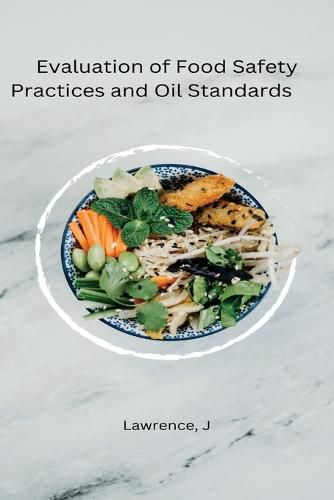Readings Newsletter
Become a Readings Member to make your shopping experience even easier.
Sign in or sign up for free!
You’re not far away from qualifying for FREE standard shipping within Australia
You’ve qualified for FREE standard shipping within Australia
The cart is loading…






This title is printed to order. This book may have been self-published. If so, we cannot guarantee the quality of the content. In the main most books will have gone through the editing process however some may not. We therefore suggest that you be aware of this before ordering this book. If in doubt check either the author or publisher’s details as we are unable to accept any returns unless they are faulty. Please contact us if you have any questions.
Food is a substance or material that originates in the environment in plant, animals, or water. It is made up of naturally occurring nutrients metabolized by and organism to sustain, grow and repair vital life processed. The primary function of food is to provide nourishment to an organism. Nourishment is furnished by nutrients: carbohydrates, fats, fibers, protein, vitamins and minerals. These and other chemical compounds are essential for basic bodily functions (Kaplan, 2012). Potter and Hotchkiss (1998) state that food is the fuel which supplies chemical energy to the body to support daily activity and synthesis of necessary chemicals within the body and is therefore critically needed for survival, growth, physical abilities and good health. Food to perform the intended use must be nutritionally complete and be free of any injurious substances. A lack or insufficiency of food or consumption of food containing harmful substances may result in dietary illnesses, i.e. Pellagra, Rickets, Marasmus, Kwashiorkor and Keratosis or Foodborne diseases, i.e. Cholera, Dysentery, Hepatitis, Salmonellosis and Typhoid (Shapton & Shapton, 1993; Frazier & Westhoff, 1988).
$9.00 standard shipping within Australia
FREE standard shipping within Australia for orders over $100.00
Express & International shipping calculated at checkout
This title is printed to order. This book may have been self-published. If so, we cannot guarantee the quality of the content. In the main most books will have gone through the editing process however some may not. We therefore suggest that you be aware of this before ordering this book. If in doubt check either the author or publisher’s details as we are unable to accept any returns unless they are faulty. Please contact us if you have any questions.
Food is a substance or material that originates in the environment in plant, animals, or water. It is made up of naturally occurring nutrients metabolized by and organism to sustain, grow and repair vital life processed. The primary function of food is to provide nourishment to an organism. Nourishment is furnished by nutrients: carbohydrates, fats, fibers, protein, vitamins and minerals. These and other chemical compounds are essential for basic bodily functions (Kaplan, 2012). Potter and Hotchkiss (1998) state that food is the fuel which supplies chemical energy to the body to support daily activity and synthesis of necessary chemicals within the body and is therefore critically needed for survival, growth, physical abilities and good health. Food to perform the intended use must be nutritionally complete and be free of any injurious substances. A lack or insufficiency of food or consumption of food containing harmful substances may result in dietary illnesses, i.e. Pellagra, Rickets, Marasmus, Kwashiorkor and Keratosis or Foodborne diseases, i.e. Cholera, Dysentery, Hepatitis, Salmonellosis and Typhoid (Shapton & Shapton, 1993; Frazier & Westhoff, 1988).